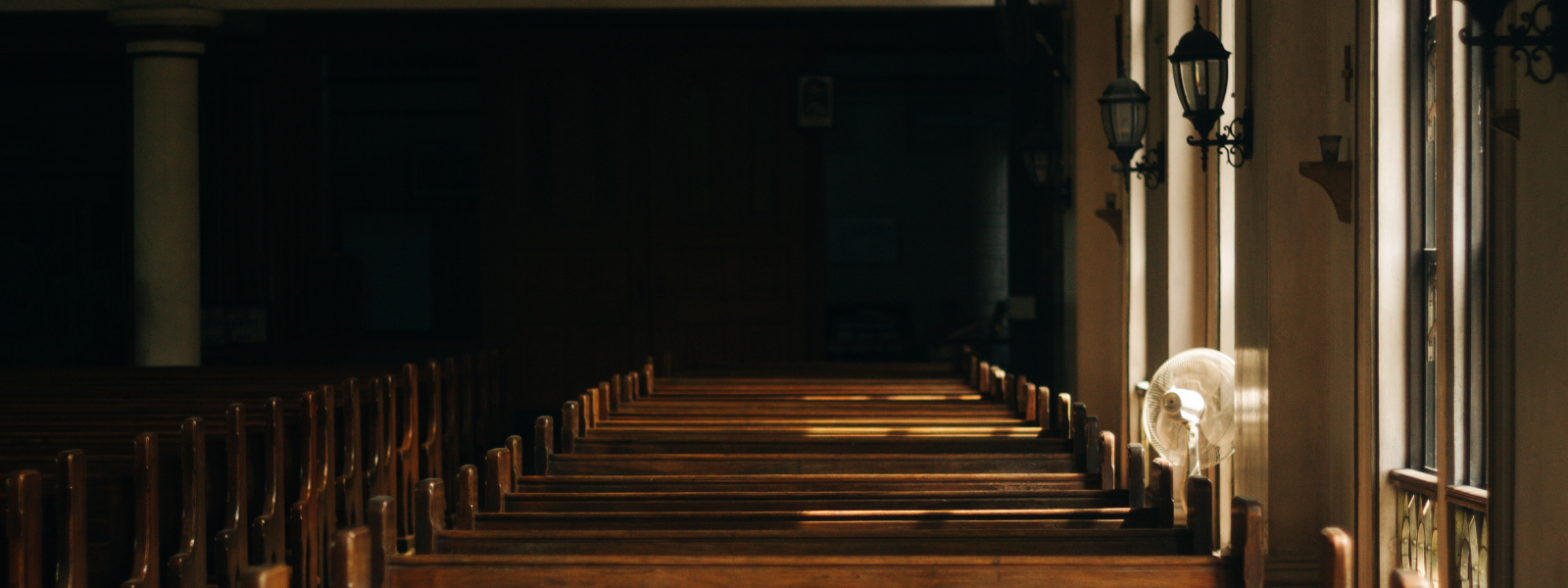Family is a messy thing. Has a more obvious observation ever been made? I’ve often wondered why? Is there something inherent in families that makes them messy? Is there something we are looking for in “family” that we aren’t supposed to find there?
I don’t think the answer to either of those questions is yes. I think family is hard and messy for the same reasons that make it vital to life and full of potential in displaying the qualities of God. If you don’t have the potential for hurt and awkwardness then neither do you have the potential for closeness and trust, both of which are vital to our thriving.
The body of Christ, the Church, is described as a body and a family. There is great potential for meaningful, life-giving relationships, but with that potential there must also be the potential for hurt and pain. Sometimes there are unfair expectations placed on the church community: that it will be squeaky clean, that there won’t be conflict present, that everyone defers to everyone else. These expectations are very real and often cause increased levels of inauthenticity and mask wearing (but that’s another blog).
Jesus said, “In this world you will have tribulation. But take heart; I have overcome the world.”
Do we think this means trouble won’t come inside the church community? Quite the contrary; it’s because there is so much potential for real oneness (as Jesus prayed for) that we find high potential for conflict.
So what do you do with this thing called the family of Christ when there is hurt and your desire for oneness feels about even with your desire to run your nails across a chalk board?
Two key perspectives:
1.) Look at the same verse mentioned above, John 16:33. Jesus said “I tell you this that you may have peace in me.” In the midst of trouble, hurt, and conflict, our source of peace is Jesus. The temptation is to hold onto the hurt as though its loss would be a loss of identity, but Jesus says “I’m the peace you need and I’ve overcome the trouble.” Are you seeking peace in Christ? Do you talk with him about the hurt, conflict, and trouble the same way you might chat about it with someone you deeply trust?
2.) Second, as difficult as it is to do, consider the bigger picture when there is a hurt that is preventing unity and reconciliation. Ask yourself, does Jesus love that person or those people any more or less than he loves me? When we put ourselves aside and partner with God in viewing people the way he does, we receive empathy and understanding that leads to forgiveness. We are able to elevate the conversation to a different level by seeking the higher way.
This of course, does not always happen all at once, but is a continual process of forgiveness. Recently our staff was at a leadership conference where Immaculée Ilibagiza, a survivor of the 1994 Rwandan genocide, was speaking. She described how she had narrowly survived by hiding in a neighbor’s bathroom for three months while the genocide raged outside. When it was all over and the dust settled, she emerged from the bathroom to find that her entire family had been murdered in cold blood simply because they were members of the “wrong” tribe.
As she searched through scripture in the wake of the event, she continued to come upon verses related to forgiveness (Colossians 3:13, Matthew 6:14-15, Luke 17:3-4, etc. etc.) and she pleaded with God, “no Lord, not them. You surely cannot mean for me to forgive them?”
She concluded by saying that with time, she did learn to forgive, eventually visiting one of the men who murdered her family in prison and telling him in person. “If I can forgive the people who killed my family, she said, “you can forgive anyone.”
Well, and what can we say to that?
If we cannot first love the neighbor in the pew next to us, how can we go about loving the people outside the church and changing the world?
When it comes right down to it, the love and community we experience in the church prepares us to serve a greater need, one bigger than ourselves. It allows us to better understand the way God relates to the world and his heart for us. Although the hurt won’t go away immediately, when we hold on to the peace that Jesus offers in the midst of trouble and take the first step on the journey of forgiveness, we are on our way to mending the unity in this messy but infinitely beautiful family.
*) Disclaimer. This is not a suggested model for overlooking physical/sexual abuse. Those situations are not in the scope of this blog. This blog is addressing the vast majority of “hurts” and offenses that happen in the family of the church.
Our suggested reading list on this topic:
- Post-Traumatic Church Syndrome by Reba Riley
- Healing Your Church Hurt: What To Do When You Still Love God But Have Been Wounded by His People by Stephen Mansfield
- Renewed: A 40-Day Devotional for Healing from Church Hurt and for Loving Well in Ministry by Leigh Powers
- Wounded In The Church: Hope Beyond the Pain by Chris Hayward and Ray Beeson
- If you’re interested in reading Immaculée Ilibagiza’s full story of surviving the Rwandan genocide and learning to forgive, you can find it in her book Left to Tell

I want to grow in my journey of purposeful compassion by receiving stories, encouragement, and service opportunities to my email inbox!


